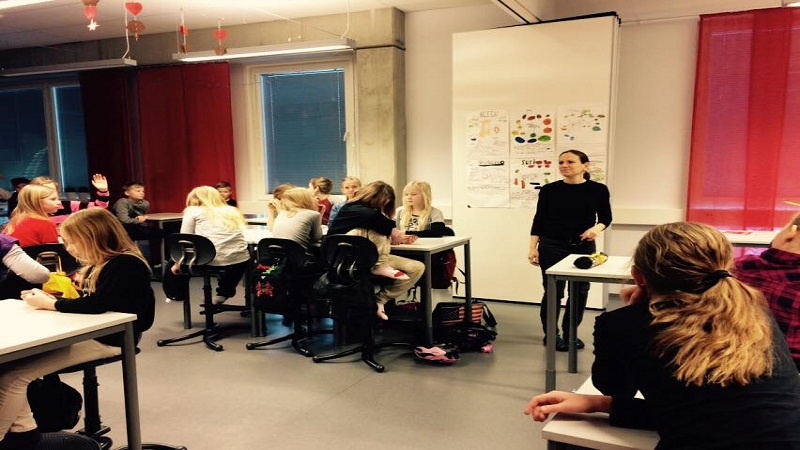Studying can be overwhelming, especially when faced with tight deadlines, complex subjects, or personal challenges. However, maintaining a positive mindset is crucial for academic success and mental well-being. According to a study by the American Psychological Association, students who adopt a positive outlook are 30% more likely to achieve higher grades. This blog post will provide actionable tips to help you stay positive during challenging studies, backed by research and expert advice.
Why Positivity Matters in Academic Success
The Science Behind Positivity and Learning
Research shows that a positive mindset enhances cognitive function, memory retention, and problem-solving skills. A study published in Psychological Science found that students who practiced gratitude and optimism performed better in exams. Positivity reduces stress, which is a major barrier to effective learning.
The Impact of Negativity on Academic Performance
Negativity, on the other hand, can lead to procrastination, burnout, and poor academic outcomes. According to the National Institute of Mental Health, chronic stress affects 60% of students, leading to decreased productivity. Staying positive is not just about feeling good; it’s about creating a conducive environment for success.
Actionable Tips to Stay Positive During Challenging Studies
-
Set Realistic Goals
Break down your study tasks into smaller, manageable goals. This approach prevents overwhelm and provides a sense of accomplishment. For example, instead of aiming to complete an entire chapter, focus on understanding one section at a time.
-
Practice Mindfulness and Meditation
Mindfulness techniques, such as deep breathing and meditation, can reduce stress and improve focus. A Harvard study found that mindfulness meditation increases gray matter in the brain, enhancing learning and memory.
-
Maintain a Healthy Lifestyle
A balanced diet, regular exercise, and adequate sleep are essential for mental clarity and emotional stability. According to the CDC, students who sleep 7–9 hours per night perform better academically.
-
Surround Yourself with Positive Influences
Build a support system of friends, family, or mentors who encourage and motivate you. Positive social interactions boost morale and provide emotional support during tough times.
-
Celebrate Small Wins
Acknowledge and reward yourself for achieving small milestones. This practice reinforces positive behavior and keeps you motivated.
-
Use Positive Affirmations
Repeat affirmations like “I am capable” or “I can handle this challenge” to boost self-confidence. Research from the University of Pennsylvania shows that self-affirmation improves problem-solving under stress.
-
Take Regular Breaks
Incorporate short breaks into your study routine to avoid burnout. The Pomodoro Technique, which involves 25-minute study sessions followed by 5-minute breaks, is highly effective.
-
Seek Help When Needed
Don’t hesitate to ask for help from teachers, tutors, or peers. Collaboration and guidance can make challenging subjects more manageable.
-
Visualize Success

Imagine yourself achieving your academic goals. Visualization techniques enhance motivation and reduce anxiety, according to a study in the Journal of Applied Psychology.
-
Limit Distractions
Create a dedicated study space free from distractions like social media or noise. This helps maintain focus and productivity.
The Role of Technology in Staying Positive
Educational Apps and Tools
Use apps like Quizlet or Evernote to organize your study materials and track progress. These tools make learning more engaging and efficient.
Online Communities and Forums
Join online study groups or forums to connect with like-minded individuals. Platforms like Reddit or Discord offer valuable resources and support.
Overcoming Common Challenges
Dealing with Failure
Failure is a natural part of the learning process. Instead of dwelling on mistakes, analyze what went wrong and how you can improve.
Managing Time Effectively
Poor time management leads to stress and missed deadlines. Use tools like Google Calendar or Trello to plan your study schedule.
Balancing Studies and Personal Life
Maintain a healthy work-life balance by setting boundaries and prioritizing self-care. This ensures long-term academic success and well-being.
Conclusion
Staying positive during challenging studies is not always easy, but it’s achievable with the right strategies. By setting realistic goals, practicing mindfulness, and seeking support, you can overcome obstacles and thrive academically. Remember, positivity is a skill that improves with practice. Start implementing these tips today and watch your academic performance soar.
Did you find these tips helpful? Share your thoughts in the comments below or pass this article along to a friend who might benefit. For more study tips, check out our related content on effective time management and stress reduction.
FAQs
How can I stay motivated during long study sessions?
Break your study sessions into smaller chunks, take regular breaks, and reward yourself for completing tasks.
What are the best mindfulness techniques for students?
Deep breathing, meditation, and progressive muscle relaxation are effective mindfulness techniques for reducing stress.
How does sleep affect academic performance?
Adequate sleep improves memory, focus, and problem-solving skills, leading to better academic outcomes.
Can technology help me stay positive while studying?
Yes, educational apps and online communities provide valuable resources and support for students.
What should I do if I feel overwhelmed by my studies?
Reach out to a teacher, counselor, or friend for support. Break tasks into smaller steps and prioritize self-care.
Read More:
The Unsung Power of Keyboarding: 5 Essential Roles in Business Studies and Beyond








